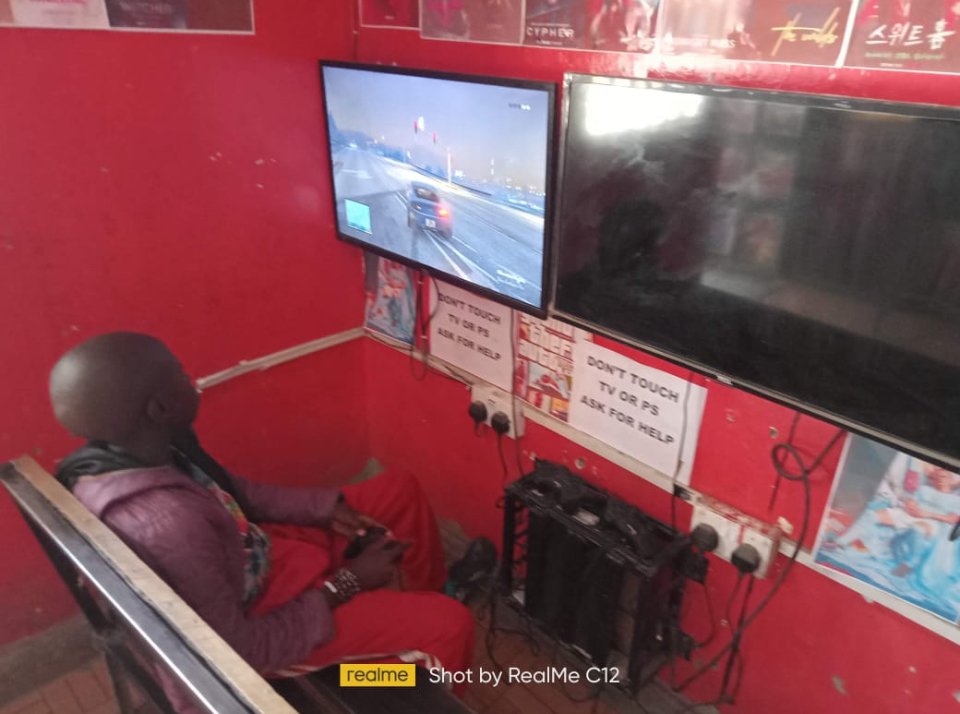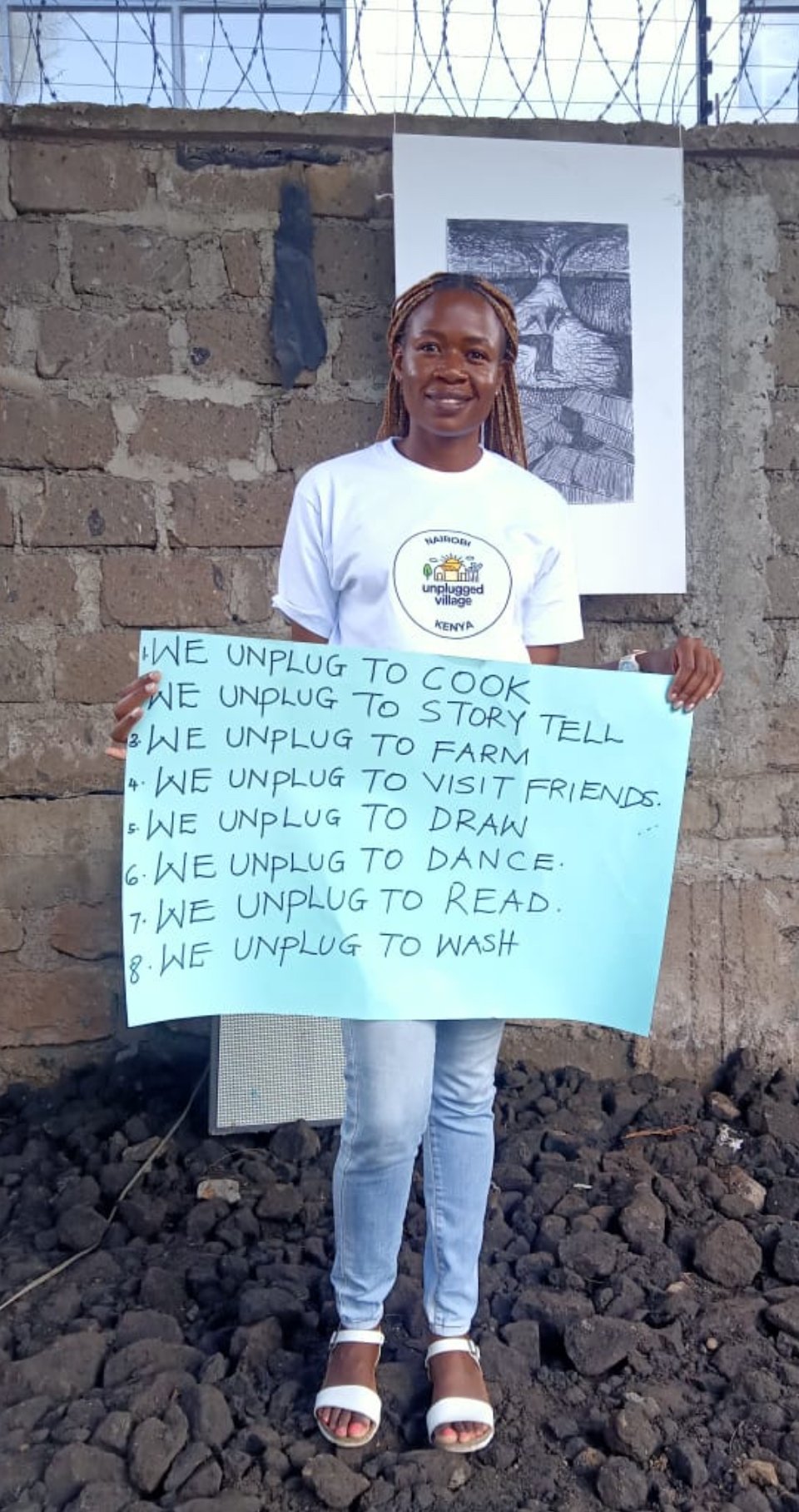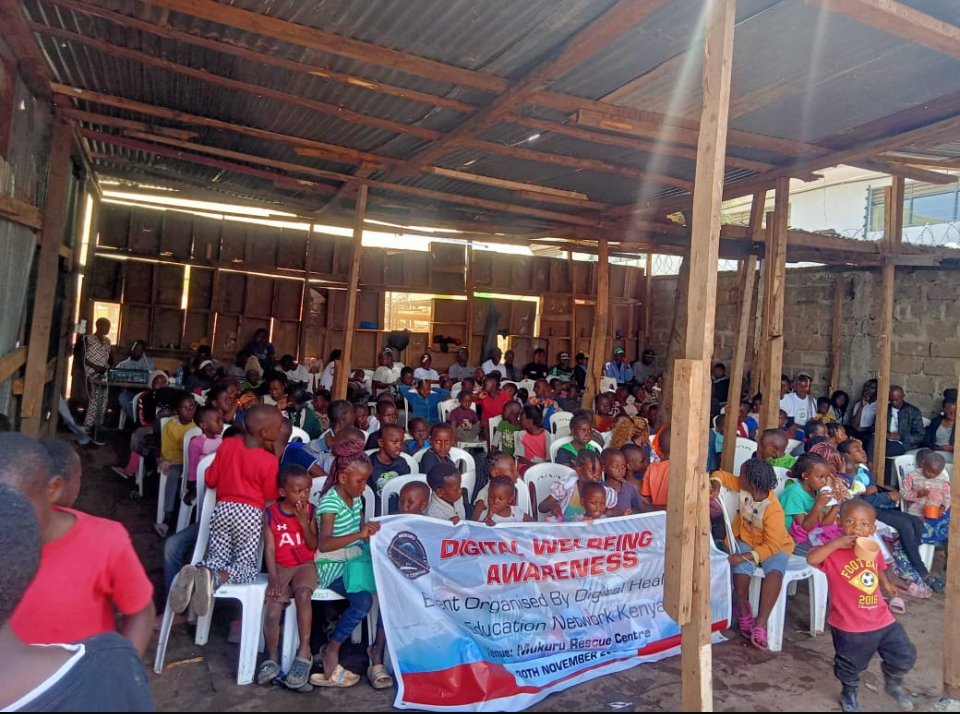Young Nairobi Leaders Spearhead Digital Wellbeing Efforts!
By Claudia Erickson, BSW, MPH - Co-founder Unplug Collaborative
Calvin Odera (third from right) Charity Simwenyi (far right) and the Gen Z team that make up Unplugged Village Nairobi.
When you think of Kenya, visions of giraffes and wildebeest may come to mind. Think of Kenya and cybersafety, and stories of phishing scams and ransomware attacks may appear. What you might be surprised to learn is that Kenya, like so many other places in the world, is also truly struggling to find balance between the hope and promise that today’s technology offers and the online safety its citizens need and deserve.
Kenya - a country steeped in poverty but rich with mobile phones
Kenya is largely affected by poverty with the average person in Nairobi living on $2 a day. Despite this limitation, mobile phones are becoming a staple in homes. In fact, Kenya has a 118% cell phone market penetration in 2024 and 97% of Kenyan’s that use the internet, access it via mobile phones. People may not have a computer, but there are more phones than there are households and in some African countries more people have access to a mobile phone than to clean water, a bank account or electricity. It may be hard to comprehend but mobile devices are becoming ubiquitous and are used for shopping, banking and other daily tasks. The government has been supportive of getting phones into the hands of all of its citizens to take advantage of e-commerce opportunities, but the infrastructure is lagging behind and power availability and outages are a frequent challenge.
People gather to watch sports outside a shop in Nairobi. Sports betting is a big draw and a big past-time here.
Lots of temptations, few guardrails
The lack of electrical support for powering these devices isn’t the only challenge faced by families here. Of great concern is the lack of education and guardrails for these devices which put so much power into the hands of its users. Phones available in Kenya often have no parental controls or screen time features making it easy to lose track of time or get into addictive patterns. Moreover, cyber cafes, gaming and gambling shops line the streets in slum areas and call out to people to come inside. Gambling, and in particular sports betting, is a problem in Kenya.
Additionally, often the youth and young adults (the Gen Z-ers) have smartphones while their parents have basic $10-$20 phones. These “dumb phones” have essentials only, allowing someone to text, call and provide a much needed flashlight. Some parents do have smartphones and hand them over to their children to keep them busy without having a real understanding of the enormous amount of information at their children’s fingertips and, of course…the dangers. When school is out, kids who used to run and play now give their attention to devices filled with gaming and harmful content, such as pornographic images, offers of drugs, and solicitations for sex.
Mom with a “dumb phone” and daughter with a Smart-Phone.
A young boy at a gaming center in town.
Young Nairobi people end up spending a lot of time online. Some reportedly resort to skipping meals or stealing money from parents to power up their devices at local charging centers (electricity is not free here) or visit gambling and gaming centers. Some even resort to having a wealthy sponsor or “Sugar Daddy/Sugar Momma” that pays for the phone in exchange for sexual favors.
Like so many people in other parts of the world, young Kenyans want the dream they see when scrolling on their devices. They hope to win big at the gambling centers and show off an oversized check like the ones they see advertised through their social media feed. They aspire to be influencers, streamers and they sometimes resort to desperate measures to try and achieve these goals.
Gen Z and Millennial Kenyan’s spreading hope for the community
Fortunately, there are people bringing awareness and education about devices to Nairobi and beyond. Calvin Odera, and Charity Simwenyi are digital wellness super hero’s working tirelessly to help spread awareness to the people of Nairobi. Calvin and Charity know the tech temptations young people face. They’ve formed the Digital Health and Education Network Kenya and their team is breaking ground on the Unplugged Village Nairobi.
Through their efforts, local students are educated about devices and encouraged to find alternatives such as playing sports, creating art, and learning how to grow their own food.
In November 2024, a digital wellbeing awareness event was held at the Mukuru Rescue Center. This full day event attended by 750 people, was supported with funding from the Unplug Collaborative. It was one part entertainment, two parts education and 3 parts serious community love. Funds helped purchase items like costumes, t-shirts, mats, signage and food.
Side note here - I was stunned to learn after this event that Calvin organized this endeavor without a laptop and only with the use of his modest phone. I can hardly imagine not having graphics programs, excel sheets etc., so as you can imagine, I was impressed!!
A parade drumming up excitement for the event. Watch the clip!
Students that were part of an acrobatics team led a parade through the streets to drum up excitement for the day (see video right). Noel Okoth, hosted the event at the Mukura Rescue Center. Local families were educated about devices from community advocates and village leaders. They talked about the importance of finding other activities to engage in and to develop skills to support their future rather than spending all their time staring at their screens.
Groups were brought into the center to gather, learn, laugh and dine together.
(Left) Noel Okoth speaks to families, (Center) a young man learns gardening, (Right) acrobatics crew shows off their skills.
It takes a Village…. an Unplugged One!
Calvin and the Digital Health Network believe in the dream of a safer, healthier connected Kenya that speaks to their values and the African Philosophy of UBUNTU (meaning "the belief in a universal bond of sharing that connects all humanity"). The hope is to get back to their roots and appreciate the values with intentional humane connections. Through more unplugged events, they want to reinvent the traditional Kinship ties, family ties that have been threatened by social media and its persuasive design. Ties that have always knitted the African people together and through which they have overcome many life threatening situations like hunger, diseases and drought.
Please consider supporting our Unplugged Village initiative and help us help communities like the Unplugged Village Nairobi create a brighter future for its residents! MAKE A DONATION HERE and visit globaldayofunplugging.org to learn more and get involved. Lastly, don’t forget to follow us on Instagram @globaldayofunplugging and @unpluggedvillage for updates and inspiration!







